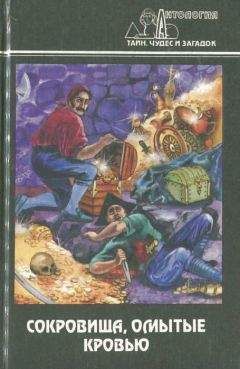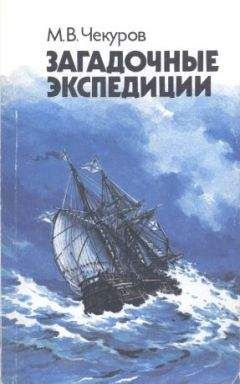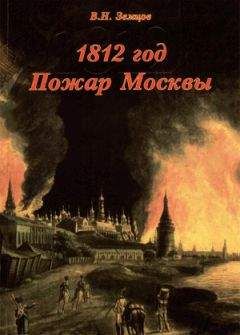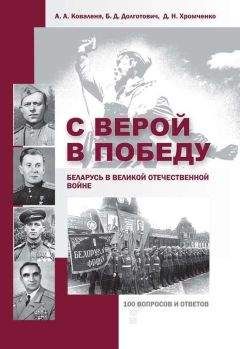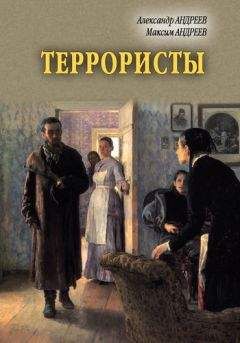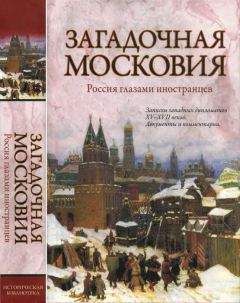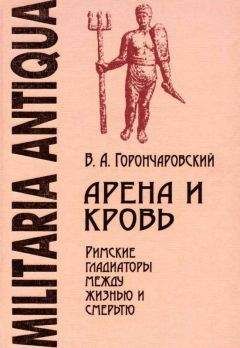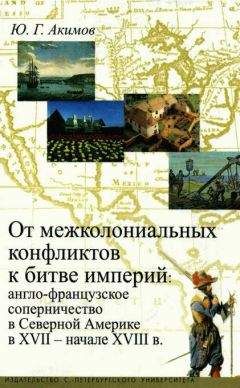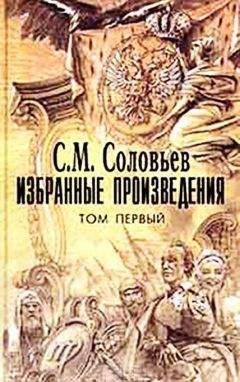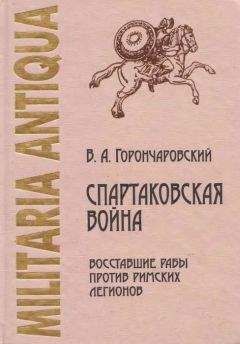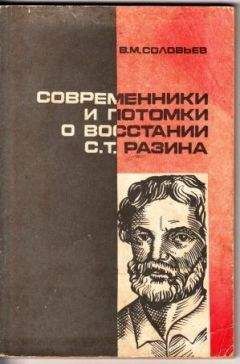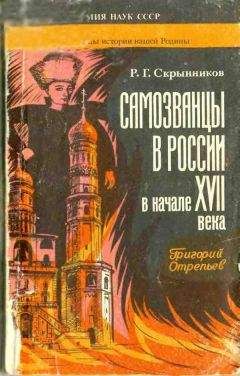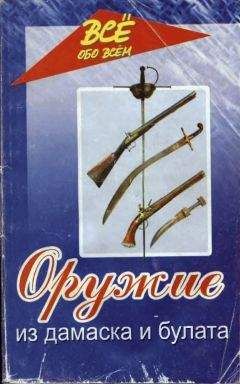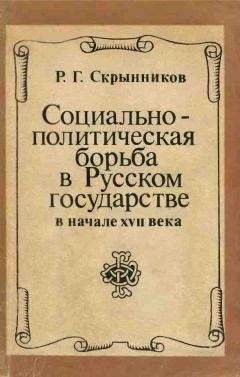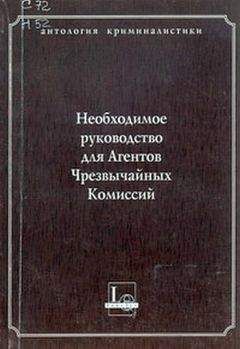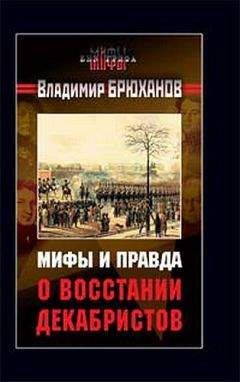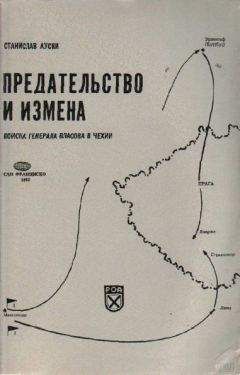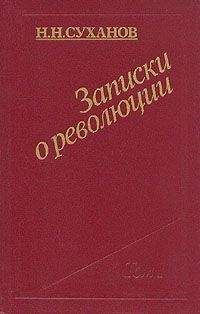А. Маньков - Иностранные известия о восстании Степана Разина
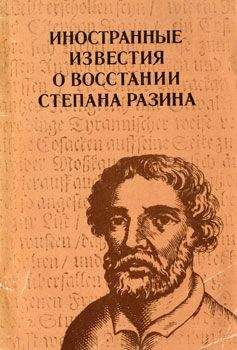
Скачивание начинается... Если скачивание не началось автоматически, пожалуйста нажмите на эту ссылку.
Жалоба
Напишите нам, и мы в срочном порядке примем меры.
Описание книги "Иностранные известия о восстании Степана Разина"
Описание и краткое содержание "Иностранные известия о восстании Степана Разина" читать бесплатно онлайн.
Издание завершает публикацию всех важнейших зарубежных материалов XVII в. о восстании С. Разина, остававшихся еще не опубликованными. (Первый выпуск — «Записки иностранцев о восстании С. Разина». Л., «Наука», 1968). В сборник вошли: брошюра о восстании, изданная в Лондоне в начале 1671 г., диссертация о Разине, защищенная и изданная в Германии в 1674 г., отклики на восстание западноевропейской прессы 1670–1671 гг. и записки Кемпфера о персидском походе Разина.
Материалы комментированы и сопровождены источниковедческими статьями.
Издание рассчитано на широкий круг читателей: учителей, студентов аспирантов, научных работников.
Stenko Radeiri's Expedition into Persia, related by word of mouth by a Cossack who assisted at it and with 30 others was taken Prisoner nine Years ago upon the Osto Duwanni (behind which as was said, lies another, Sziloi), near Baadkui, when they went robbing on their own account
After Stenko had Kept his Winter quarters in Yeikstadt[288] which place he had taken by a Stratagem, desiring to go in only with 5 persons, but Bogumolic breaking in with the Arriergard did render himself Master of it, he went to Sea with 1200 men in 29 or 30 Struses. Upon each Buse was but one Cannon, but when they came back from Astarabad, they had 2 or 3. It is to be wondered at, that they could pass the Sea with Struses; to perform this, they had defended their Vessels by fastening round about the Gunnel Rolls stuffed with Grass or Straw, which made them lighter and Kept off the (л. 5) Waves. They had built these Struses at Gurgi upon the Caspian Sea, and doubtless carried the materials with them down the Volga, for they did not take that course which Chardin describes, but the usual Robbers way through Kamuczinka Rekka, by Zariza and Astracan, where by the way they robbed all in a hostile manner. These Struses were one man high, one Russian Ell deep under Water, 8 fathoms long, and 1 fathom broad.
The first assault was[289] upon Pod buchari by Karngar[290] where the Russian Buses lye, thinking to get booty there, but this design was frustrated, therefore they went away and sailed along the Coast as far as Astrabad. There they proposed to the Cham.[291] to give them a Place to live in as subjects and assist the King against the Usbecks, Two Weeks passed, and in the third they began to traffic, they made the people confident, feigning great simplicity (giving for instance a Ducat for a little[292] Schai, and selling some Goods for a Trifle). The Cham sent a Messenger to the King, and three Weeks after they sent their Deputies also: they took 500 men[293] of all sorts of people from the Cham for Hostages; they stayd in all 6 Weeks there. Messengers after Messengers arrived from the King with favorable promises. The Cham detained them with friendly words, to amuse them till a sufficient Army could be raised. None of the Cossacks understood the Language of the Country, except Stenko, who went about every day disguised in old Clouths to hear what was discoursed, for he spoke 8 languages (л. 5 об.). Не took it ill, that the Deputies were not sent back with an answer. The Cham endeavoured, according to the Persian custom, to amuse him with Civility, promising him Honour and a Calate (Robe of Ceremony) from the King. Stenko was too cunning to be imposed upon, but returned Dissimulation for dissimulation. The Cham having allready 7000 men drawn together from all parts, invited Stenko Razin to dine with him the next day, for which mark of honour he returned him his 500 Hostages again. For the greater Security it was agread upon on both sides, that no body sh[oul]d bring Knives or any arms with them. The next day Stenko Razin ordered 500 men to ty their Sabres upon their Backs and hide them under their Coats, and to be present at the Entertainment standing in a Line: that upon a signal being given, every one should take the sabre from his Neighbour's back and make use of it. It is said, that Stenko in going about for intelligence, had information that the Persians had ordered men of their own to be present at the Entertainment, privately armed after the same manner, which was a good Plea for him that it was not he, who began Hostilities.[294] He therefore went with his 500 men to the Entertainment: the Cham had pitched his Tent in the Field about two Wersts from Astarabad attended by 700 men who had their Sabres concealed, and left their fire arms near by in a secret place. Stenko had left 500 men more in reserve, who were to observe the Motion of the Persians, and when an advantage offered were to advance against them with their Cannon. Stenko and 11 Persons with him (л. 6), sett themselves down, the rest remained standing in a Line. After they had sate a little while, and according to the custom of the Country viewed the Sweetmeats, the Cham drank Stenkos Health, and desired him to drink the King of Persia's Health, which he did. By this they fell into a familiar discourse. Stenko admired the Cham's Cloathe and fine Sabre, and the Cham admired Stenko's Cloaths which were of Sables of none of the worst sort, as also his Sabre, which Stenko draws out and presents to the Cham to look upon, the Cham, after having viewed it, returns it to Stenko, and draus out his likewise and presents it to Stenko. Stenko admires the fine Arms of the Persians as doing honour to the King whose servants they were. In talking after this manner, he plays with the Sabre and makes the Signal agreed upon to his Captain, who was a Russian Priest, and dressed in his Priestly Habit with an Iron Staff in his hand. The latter having given his Men the Blessing, Stenko begins the Massacre, with the Cham's own Sabre cutting off his Head and of 5 others. At the same time his 500 men took their Sabres and fell upon the Kiselbashes, of whom some escaped and gave the Alarm to the Army. Those could not so soon mount their Horses, before Stenko's Corps de reserve fired upon them with their Cannon, which they had planted privately in an advantageous Place, to hinder the Army from approaching. All these were killed, some few excepted who had the good look[295] to escape. After this the Cossacks attacked[296] Astarabad, put[297] all the men to the Sword,[298] plundered the Town,[299] and carried 800 women together with the Booty along with them to the Island where their Vessels lay, 48 hours travelling (л. 6 об.) from thence. There they kept these Women for 3 weeks. But as many of the Cossacks died of the Excesses they comitted with that Sex,[300] the Sea grew very tempestuous, which they looked upon as a punishment of[301] their Dabauches, besides that they intended to leave the Island yet could not take Women along with them, nor leave them behind without provisions, they resolved to make away with them all, and by this sacrifice to appease the Sea. They went afterwards to Zamur Recca[302] in Mesanderan, where they plundered the Persian Buses that lay there, and after they had scowred the Sea for 2 months, they[303] attacked Astarabad the second time, according to Chardiris, account, and went to Swino Ostro near Chilan not far from the River Kuur over against Lengenkonaan[304] an Island about 2 Wersts long, so near the Land, that one can see the People walk, and the Water so shallow, that the wild Boars are able to wade through. Upon this Island, on the other side of it, stood 7000 Persians to keep a watchful Eye upon the Cossacks in their high, half and whole Buses. The Cossacks being ignorant of this, supped that night, and laid themselves down to sleep. In the night Stenko Radzin wakened all his People, and ordered them to come together in a Circle, where he told them he had had a Dream, that the Enemy was upon the Island (for it was believed he understood magick Arts, to such a degree that he had made J all his People shot free and proof against Bullets, though others who had seen so many his people killed, knew better things) then he proposed in Council (tho[305] he believed for certain what his Spirit had already insinuated to him) whether they should venture a Battel[306] with the Enemy, or retire to the Sea.[307] The Chiefs of them, who were already before in good circumstances, or were grown rich by the Plunder of this Country, dissuaded it, saying; there had been Blood enough shed already, and they might well retire with honour. But the poorer sort buoyed up with hopes of Booty (л. 7) said: it would be a Shame to retire without venturing an Engagement. Stenko was of the opinion of the former, and yet being unwilling to oppose the latter, desired that another Person would take the Command[308] upon him. The Army offered it to an old man, who also had the Reputation of making people shotfree; he accepted it and promised them to make his own Son a Sacrifice in order to render them all bullet proof. But while this offer was making, the Son saved himself by deserting to the Enemy, and was never heard after. He himself was seized with inward Torments and a fit of trembling which lasted three hours, when that was over, he said: Well it is done, you are safe, and so they got into their Vessels and put out to Sea. The Persians seeing this, thought they fled, though they did it only to draw them on, and therefore they launched farther out into the Sea and feigned as if they were unable to manage their Vessels, which encouraged the Persians to pursue them with a great noise of Trumpets[309] and Kettle Drums. The Cham was with them in person and set up a great Flag in his Buse. They had also chained their Buses together, in hopes to enclose them all as in a net, that none might escape. But this was a great advantage to the Cossacks; for the Persians began to fire upon them, and when they were far enough from the Land, the new General of the Cossacks, thinking it was now time, ordered his Gunner who was a most expert fellow, to fire upon that great Vessel with the flag, which accordingly he did, directing his Gun to the Place under Water where the Gunpowder lay, the Bullet was hollow and filled with Nephta and Cotton, and the Shot took effect according to wish, for it blew (л. 7 об.) up part of the Buse, and set the rest on fire, the Cham retiring to the next Vessel, in this Confusion (Далее зачеркнуто чернилами повторное and the Vessel beginning not only to sink) and the Vessel beginning not only to sink, but to draw down the next with it, the Cossacks came to hinder this destruction, hoked their Vessels to those of the Persians, which having high Decks, they killed the Persians with trails or Poles to which Cannon Balls were tied, some chosing rather to throw themselves into the Sea, than to fall into the hands of the Enemy. The rest were killed by the Cossacks, who could take nothing out of the Buses but the Cannon. The Cham and 5 others they carried with them to Astracan for though they offered the Cham his Liberty, he rather chose to remain their prisoner because he had undertaken this Expedition without any orders from the King, and he died afterwards at Astracan. The Co-sacks had but 50 men wounded by Bows with which the Persians had armed one Vessel, and against which their General[310] had taken no precaution or defence.[311] After this Seafight they went to Astracan and defeated Prosorowski[312] with 7000 Russians, by which it appears, that Chardin is mistaken, when he says, the Russians had conspired with them. All this happened in one Summer or 6 months time, and consequently Chardiri's is again in the wrong, when he says they stayd the Winter in Persia.
Э. КЕМПФЕР. ЗАПИСКИ О ПЕРСИДСКОМ ПОХОДЕ С. РАЗИНА ИЗ РУКОПИСИ КЕМПФЕРА, НАХОДЯЩЕЙСЯ ВО ВЛАДЕНИИ СЭРА ГАНСА СЛОУНА, ПЕРЕВЕДЕННОЙ И ПОДГОТОВЛЕННОЙ К ИЗДАНИЮ ДОКТОРОМ МОРТИМЕРОМ
Верхненемецкий
Сравни Кемпфера из «Амонитатус екзотикарум…» (с. 58).[313]
Я должен здесь заметить, что народ, называемый казаками, совершенно отличен от настоящих казаков, которые являются народом турецкого происхождения и магометанского вероисповедания и населяют страну поблизости Туркестана; хотя верно и то, что оба эти народа вначале имели общее происхождение, так же как и название. Казаки, которые чинили беспорядки в Шелковых странах на Каспийском море, были подданными России, населяли территорию в районе Дона, были христианами по религии, говорили и писали на русском языке и управлялись начальником, которого они называли боярином, и чье имя было Стенька Разин, и который — мне неизвестно, из-за какого недовольству русским правительством, — покинул свою страну и поднял мятеж.[314] С отрядом в 800 человек он спустился одним из рукавов Волги до Астрахани, вышел под парусами в Каспийское море и потом высадился между реками Араксом (Aras) и Кизилагатом в области Махан,[315] где в начале 1667 г. он обратился к шаху (the King), прося даровать ему немного земли, причем давал самые решительные заверения, что его люди будут вести себя как настоящие шахсивен, что на местном (Turkish)[316] языке значит быть верными монаршему величеству или быть верными слугами государя и верноподданными, и что они всегда будут готовы защищать его и служить ему.[317] Но при дворе этим людям не доверяли, на них смотрели как на разбойников, в чем еще раньше убедились по опыту, и хотя не дали прямого отказа, но держали их в ожидании, медля с ответом. Казаки, потеряв терпение, отправились на своих кораблях вдоль побережья Гиляни и подошли очень близко к Решту (Resjt)[318] — главному городу этой провинции, где высадили несколько человек на берег и хотели купить провизии, но наместник отказал им в очень неучтивой форме, и это так раздражило их, что они ночью бесшумно высадились на берег и, неожиданно пройдя к Решту, ограбили рынок и базар, причем некоторые были убиты в схватке; затем они вернулись снова на свои корабли, изрядно запасшись продовольствием, за которое незадолго до этого предлагали деньги, и, таким образом, почувствовали себя увереннее. Наместник, не будучи в состоянии оказать противодействие, а тем более прогнать их и опасаясь могущих последовать еще более крупных опустошений, скрыл свое негодование их действиями и позволил им получать в дальнейшем провизию за деньги. Они со своей стороны извиняли свое поведение крайней нуждой и отказом им в самом необходимом. Затем они вели себя тихо и, наконец, дали наместнику заложников в качестве гарантии своего хорошего поведения. Они послали к шаху четырех послов, чтобы принести извинения за свои действия, к чему их побудил наместник; они повторили свою первую просьбу о земле для поселения на побережье Каспийского моря с самыми решительными заверениями в своей честной службе и верности. Они привезли с собой письма, которые никто не смог прочесть; их показали европейским священникам и, наконец, мне; я счел как язык, так и буквы русскими. Но я не перевел их, и они так и остались непереведенными (шевалье Шарден ошибается, когда говорит в своем отчете о коронации Сулеймана, что они были написаны неизвестными буквами).[319] Двор был устно осведомлен об их намерениях теми русскими, которые понимали местный (turkish) язык и чей родной язык был тот же, что и этих казаков. Шах повелел хорошо принять [послов], оставить их на свободе и послать одного из них обратно со [своим] добрым напутствием, внушив им некоторые надежды и отдав приказ правителю Решта обеспечить их всем необходимым.[320] Тем временем персы надеялись собрать достаточное число людей, чтобы окружить казаков. Но казаки, видя, что положительного ответа все еще нет, а есть только обещания, предвидя ловушку и замечая, что собирается целая армия, не стали высказывать свои претензии персам, а сами позаботились о собственной безопасности и отправились под парусами к Фарабату (Ferrhabaad) в Мазендеране, делая вид, будто намереваются ожидать ответа и возвращения своих послов там, потому что это было более дешевое и более плодородное место. Жители Фарабата не имели ничего против того, чтобы принять казаков, потому что они вели себя так хорошо в Реште и, казалось, не имели никакого злого умысла, пока их послы находились при дворе. Карманы их были полны дукатов, что привлекало [к ним] народ из соседних районов в надежде поживиться, так что на базаре и во всем городе было больше народа, чем обычно. Казаки, подозревая персов в предательстве из-за столь долгой задержки послов, решили упредить их [действия], для чего избрали удобный случай в еженедельный базарный день. На базаре в городе было очень много покупателей и торговцев, а также и других людей, которые пришли, чтобы развлечься или из любопытства и в надежде на прибыль от торговли с казаками. В самый разгар ярмарки казаки напали на народ, грабили и захватывали все, что было выставлено и разложено для продажи, избивали одних и уводили других с собой на корабли.[321] Таким образом, они вернули себе монетами и золотом все, что раньше потратили, и даже много сверх того. Не довольствуясь этим, они совершили налет на королевские увеселительные дворцы невдалеке от города, которые они также ограбили и унесли добычу с собой на корабли,[322] после чего отправились под парусами к полуострову Майан-Кааль (Майан-Кааль, Потемкинская коса (Шарден переводит это персидское название как «Средний Рог») — полуостров, отделяющий Астрабадский (Гоганский) залив в юго-восточной части Каспийского моря.), который соединяется перешейком с провинцией Мазендеран. Поперек него они построили укрепление, чтобы полностью перерезать связь с сушей, и расположились здесь, не обращая внимания на персов.
Подписывайтесь на наши страницы в социальных сетях.
Будьте в курсе последних книжных новинок, комментируйте, обсуждайте. Мы ждём Вас!
Похожие книги на "Иностранные известия о восстании Степана Разина"
Книги похожие на "Иностранные известия о восстании Степана Разина" читать онлайн или скачать бесплатно полные версии.
Мы рекомендуем Вам зарегистрироваться либо войти на сайт под своим именем.
Отзывы о "А. Маньков - Иностранные известия о восстании Степана Разина"
Отзывы читателей о книге "Иностранные известия о восстании Степана Разина", комментарии и мнения людей о произведении.





